Crafting the Ideal Sympathy Floral Tribute

The Art of Sympathy: Crafting the Perfect Floral Tribute
Introduction
Flowers have long played a crucial role in commemorating the lives of our dearly departed. They symbolize love, respect, and offer a visual expression of our deepest condolences. This article explores the art of sympathy, helping you craft the perfect floral tribute to honor your loved ones.
The Significance of Flowers in Funerals and Memorials
Flowers hold a unique and enduring significance in funerals and memorials across various cultures and traditions. They serve multiple purposes, providing solace, commemorating the life of the deceased, and helping to create a comforting atmosphere for the grieving family and friends.
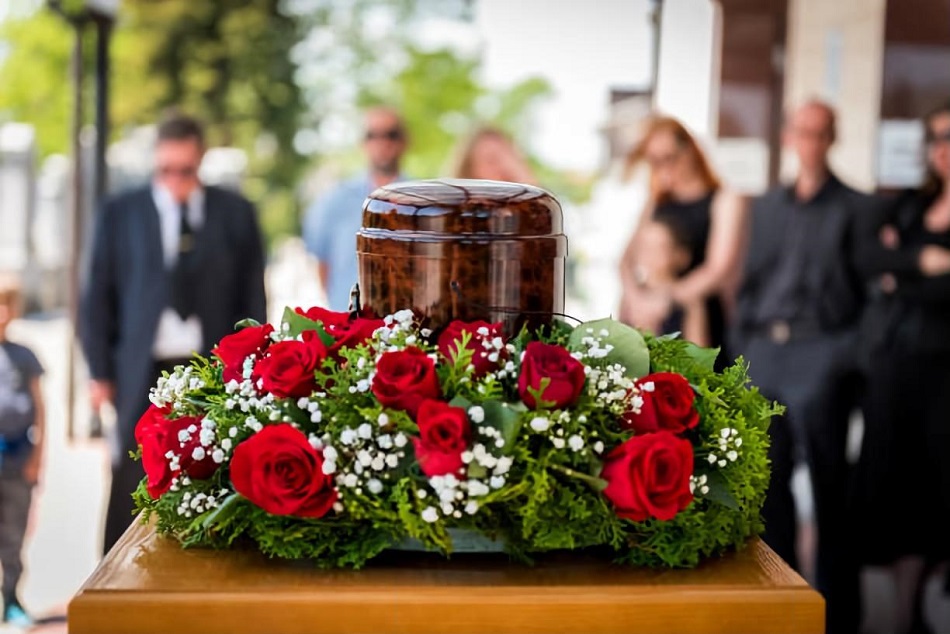
Emotional Expression
One of the primary reasons flowers are used in funerals and memorials is their ability to express emotions and sentiments that are often difficult to put into words. The colors, scents, and symbolism of different flowers can evoke feelings of love, respect, sorrow, and hope, helping to convey heartfelt condolences to the bereaved.
Aesthetic Appeal
Flowers have an innate beauty that can transform the atmosphere of a funeral or memorial service. They can be arranged in various ways, from simple bouquets to elaborate wreaths and casket sprays, adding a touch of elegance and grace to the proceedings. The presence of flowers helps create a warm and inviting environment, offering a sense of peace and tranquility during a time of grief.
Symbolic Gestures
In many cultures, flowers are deeply symbolic and are believed to possess spiritual significance. For instance, some cultures believe that flowers can help guide the soul of the deceased into the afterlife. In others, they represent the impermanence of life, reminding us to cherish the moments we have with our loved ones. By incorporating flowers into a funeral or memorial service, we acknowledge and respect these symbolic meanings.
Connection to Nature
Flowers, as a product of nature, have a grounding and healing effect on the human spirit. Their presence at funerals and memorials can help create a connection to the natural world, offering solace and comfort during a time of profound loss. This connection can be especially meaningful if the deceased had a strong bond with nature or found solace in outdoor settings.
Memory and Tribute
Finally, flowers play a significant role in honoring the memory of the deceased. The selection of specific flowers, colors, and arrangements can reflect the personality, preferences, and life experiences of the person who has passed away. By incorporating these personalized elements into the floral tribute, we create a unique and meaningful testament to their life.
In conclusion, the significance of flowers in funerals and memorials cannot be overstated. They provide a powerful means of emotional expression, create a comforting atmosphere, and serve as symbolic gestures that honor the life and memory of the deceased. By understanding the importance of flowers in these solemn occasions, we can craft thoughtful and meaningful tributes that bring comfort to the bereaved and celebrate the lives of our loved ones.
Choosing the Right Flowers to Convey Your Condolences
Selecting the appropriate flowers for a funeral or memorial service can be a daunting task, but understanding the symbolism behind various flowers can help guide your decision. It's also important to consider the cultural context and the personal preferences of the deceased and their family.
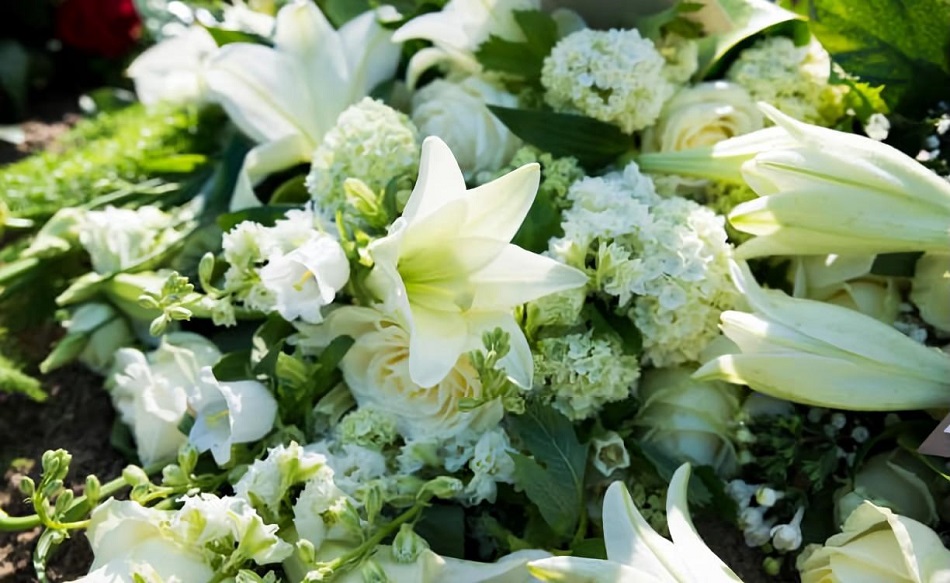
Understanding Flower Symbolism
Different flowers have different meanings and convey various emotions. When selecting flowers for a funeral or memorial service, it's important to understand the symbolism behind each flower to ensure your floral tribute is both meaningful and appropriate.
The Language of Flowers in Different Cultures
Cultural beliefs and customs play a significant role in the selection of funeral flowers. For example, in many Asian cultures, white is the color of mourning, while in Western cultures, it often symbolizes purity and innocence. Understanding these cultural nuances can help you make informed decisions when selecting funeral flowers.
Commonly Used Flowers and Their Meanings
Some of the most popular flowers used in funeral and memorial services include:
- White lilies: These represent purity and innocence and are often used to honor the deceased's soul.
- Roses: Dependent on their color, roses can symbolize love, respect, and admiration.
- Chrysanthemums: These flowers represent grief and honor and are commonly used in European and Asian funeral traditions.
- Orchids: Symbolizing eternal love and beauty, orchids are often used in funeral arrangements to celebrate the life of the deceased.
Funeral and Memorial Arrangements
White Lily and Rose Sheaths
A white lily and rose sheath is a classic choice for a funeral or memorial service. The combination of white lilies and roses creates a sense of purity, innocence, and love. When designing the perfect sheath, consider the size, shape, and overall aesthetic you want to achieve.
Funeral Cushions
Funeral cushions are an alternative to traditional flower arrangements. They symbolize comfort and support, making them a heartfelt way to convey your condolences. You can customize funeral cushions by incorporating the deceased's favorite flowers or colors.
Colored Funeral Wreaths
Using colored flowers in a funeral wreath allows you to express a range of emotions. For example, red can symbolize love and passion, while blue may represent peace and tranquility. When crafting a colored funeral wreath, consider the emotions you want to convey and the overall aesthetic you hope to achieve.
Seasonal Considerations
When selecting flowers for a funeral or memorial service, it's essential to consider the season. Some flowers, like roses and lilies, are available year-round, while others may only be available during specific seasons. Choosing flowers that are in season not only ensures your arrangement looks its best but can also help you stay within your budget.
International and Cultural Variations
Understanding the international and cultural variations in funeral flower practices is essential when crafting the perfect floral tribute. Different cultures have unique customs and beliefs associated with flowers, and honoring these traditions can ensure that your tribute is both meaningful and respectful.
Western Traditions
In many Western cultures, such as the United States, Canada, and Europe, flowers are a common feature at funerals and memorials. They are used to convey condolences, express emotions, and decorate the funeral venue. Popular flowers include lilies, roses, and chrysanthemums, which have meanings of purity, love, and grief, respectively. Wreaths, sprays, and sheaths are common arrangements, while bouquets and potted plants may be sent to the bereaved home as a gesture of support.
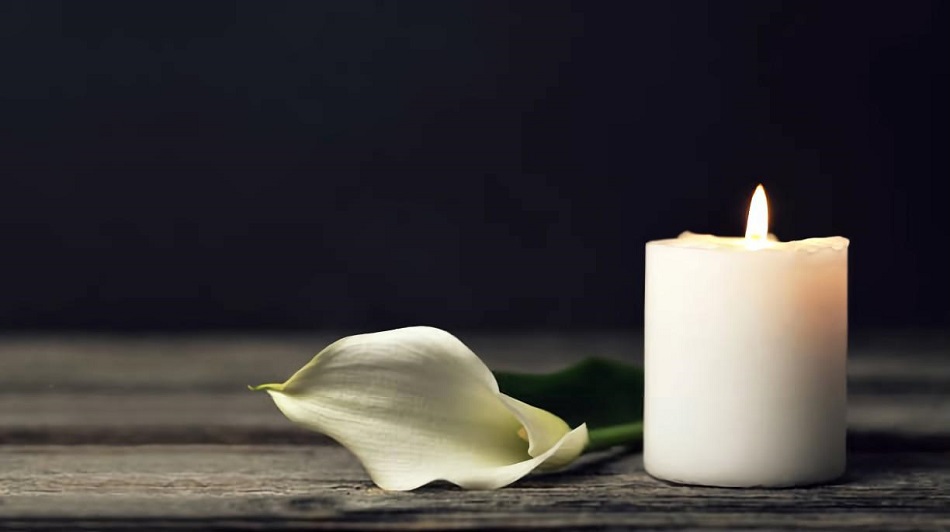
Eastern Traditions
In many Eastern cultures, such as China and Japan, flowers play a significant role in funerals and ancestor worship. White is the primary color associated with mourning, and chrysanthemums are often the flower of choice, representing grief and lamentation. In Japan, the practice of "koden" involves sending money to the bereaved family as a gesture of support, and flowers are usually reserved for close friends and family members.
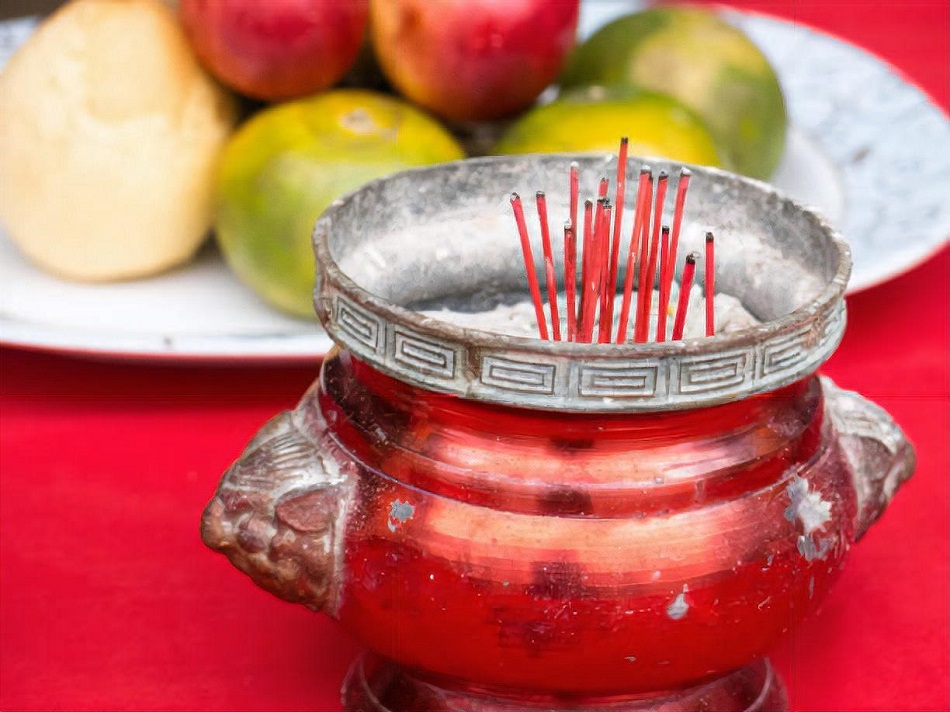
Hindu Funerals
Hindu funerals often feature garlands and loose flowers, such as marigolds, jasmine, and roses, which are used to decorate the body of the deceased and the cremation site. The bright colors of these flowers symbolize the celebration of life and the soul's journey to the next realm. It is important to avoid using white flowers in Hindu funerals, as they are associated with widowhood and may be considered inauspicious.
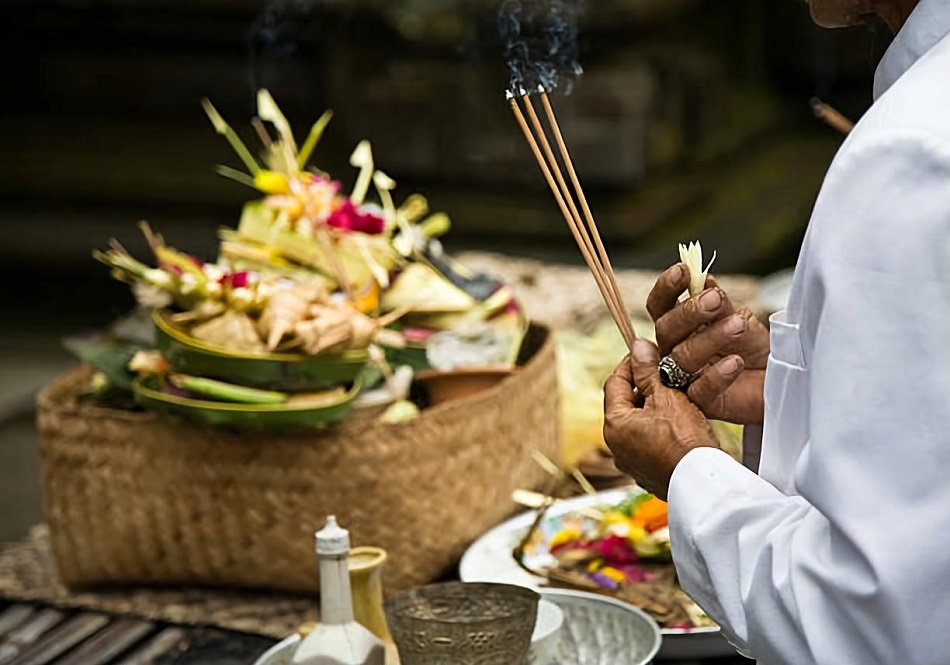
Islamic Funerals
Islamic funerals have strict customs and traditions, and flowers are not typically a central feature. However, some families may choose to incorporate flowers as a gesture of respect and affection. If flowers are used, it is essential to select simple and modest arrangements, as lavish displays may be considered inappropriate. Greenery and foliage may also be used to honor the deceased's connection to nature and their faith.
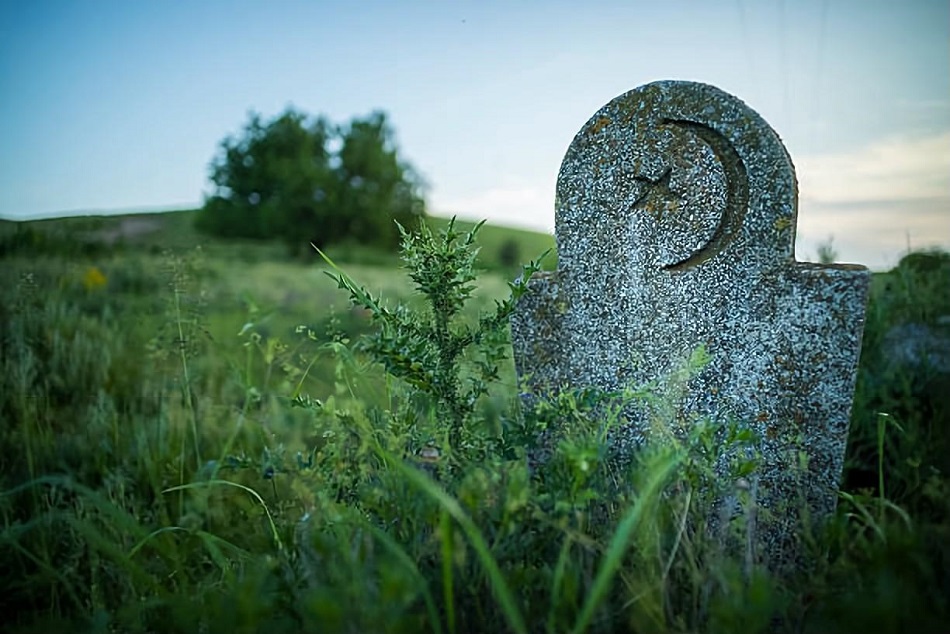
Jewish Funerals
In Jewish funerals, flowers are generally discouraged, as they are seen as a distraction from the primary focus of mourning and prayer. Instead, the tradition of "shiva" involves friends and family members coming together to provide support and comfort to the bereaved, often bringing food and other practical necessities. However, some Jewish families may appreciate a modest floral arrangement or a donation to a charity in the deceased's memory.
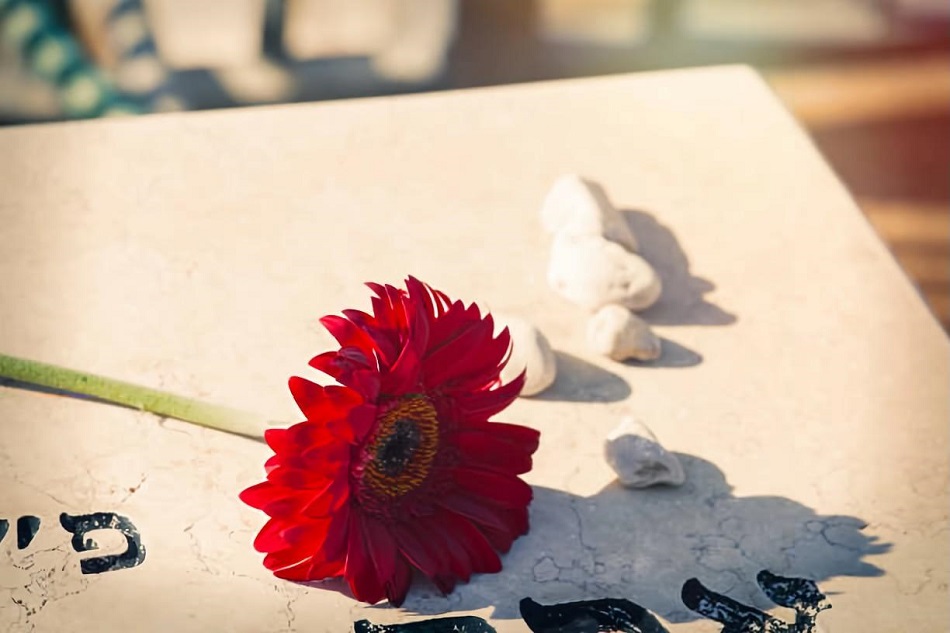
When crafting a floral tribute for a funeral or memorial service, it is crucial to understand and respect the cultural nuances and variations that may be present. By doing so, you can create a meaningful and appropriate tribute that honors the deceased's background and beliefs while providing comfort to the grieving family.
Tips for Selecting and Purchasing Funeral Flowers
- Consider the deceased's preferences and personality: When selecting funeral flowers, consider the deceased's favorite flowers, colors, and overall aesthetic preferences. This personal touch can make your tribute even more meaningful.
- Working with a professional florist: Collaborating with a professional florist, such as those at Lily's Florist, can help you create a stunning and appropriate floral tribute. Their expertise in flower selection, arrangement, and symbolism will ensure your tribute is both beautiful and meaningful.
- Budgeting for funeral and memorial flowers: Funerals and memorials can be expensive, so it's important to establish a budget for your floral tribute. A professional florist can help you select the most appropriate flowers and arrangements within your budget.
Etiquette for Sending and Displaying Funeral Flowers
Timing and Delivery
When sending funeral flowers, it's crucial to consider the timing of the service and the preferences of the family. Generally, it's best to have flowers delivered the day before or the morning of the service.
Appropriate Placement at the Service
Funeral flowers should be placed strategically within the service venue to ensure they are visible and do not obstruct the view of the attendees. Consult with the funeral director or the family for guidance on appropriate placement.
DIY Funeral Flower Arrangements
If you prefer a more hands-on approach, consider creating your own funeral flower arrangement. There are numerous resources available online to guide you through the process, including tutorials and inspiration for various styles and designs. Remember to gather the necessary tools and materials before beginning, such as floral foam, wire, and tape.
Preserving the Arrangement as a Keepsake
After the funeral or memorial service, you may wish to preserve your floral tribute as a keepsake. Techniques such as drying, pressing, or even creating a resin cast can help you preserve the arrangement for years to come.
Adding to your beautiful floral tribute, you can consider selecting from some of the exquisite arrangements available at Lily's Florist. These arrangements have been carefully designed to convey heartfelt emotions and show respect during this difficult time.
Divine Peace
The Divine Peace arrangement is a serene combination of white lilies, roses, and fragrant stock. This elegant arrangement exudes a sense of calm and peace, providing comfort to the grieving family. The Divine Peace arrangement is a thoughtful way to express your condolences and is suitable for various funeral and memorial services.
From the Heart
The From the Heart arrangement is a stunning combination of red roses and carnations, white lilies, and delicate Queen Anne's lace. This arrangement symbolizes love, respect, and devotion, making it an ideal choice to honor the memory of a loved one. Its vibrant colors and elegant design make it a touching tribute that will be cherished by the family.
Celestial Passion
The Celestial Passion arrangement showcases a beautiful blend of purple, lavender, and white flowers, including roses, lilies, and lisianthus. This celestial-inspired arrangement conveys a sense of eternal love and admiration for the deceased. Its unique design and soft color palette make it a fitting choice for a funeral or memorial service.
Incorporating these exceptional arrangements into your floral tribute can create a memorable and meaningful display that honors the life of your loved one. By working with a professional florist like Lily's Florist, you can ensure your floral tribute is not only visually stunning but also deeply significant.
Conclusion
A heartfelt floral tribute can offer solace and comfort to grieving family and friends. By understanding the symbolism of flowers, cultural variations, and proper etiquette, you can craft a meaningful tribute that honors the life and memory of your loved one.
Frequently Asked Questions
- Can I send flowers if I am unable to attend the funeral or memorial service?
Yes, sending flowers even if you cannot attend the service is a thoughtful way to express your condolences and show your support for the family. - Are there any flowers that should be avoided for funerals and memorials?
It's best to avoid overly bright or festive flowers, as they may not convey the appropriate solemnity for the occasion. Consult with a professional florist for guidance on suitable flower choices. - How can I ensure my floral tribute stays fresh for the service?
Selecting high-quality, fresh flowers and keeping them in a cool, humid environment can help maintain their freshness. Additionally, consider using a floral preservative spray. - What if the family requests a charitable donation in lieu of flowers?
If the family requests donations instead of flowers, it's important to respect their wishes. You can still send a personal note or card expressing your condolences. - Is it appropriate to include a personal message with the floral arrangement?
Yes, including a personal message with your floral tribute is a thoughtful way to express your condolences and share your memories of the deceased.
